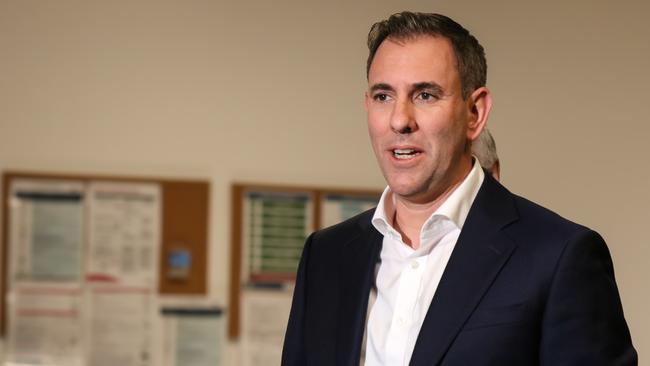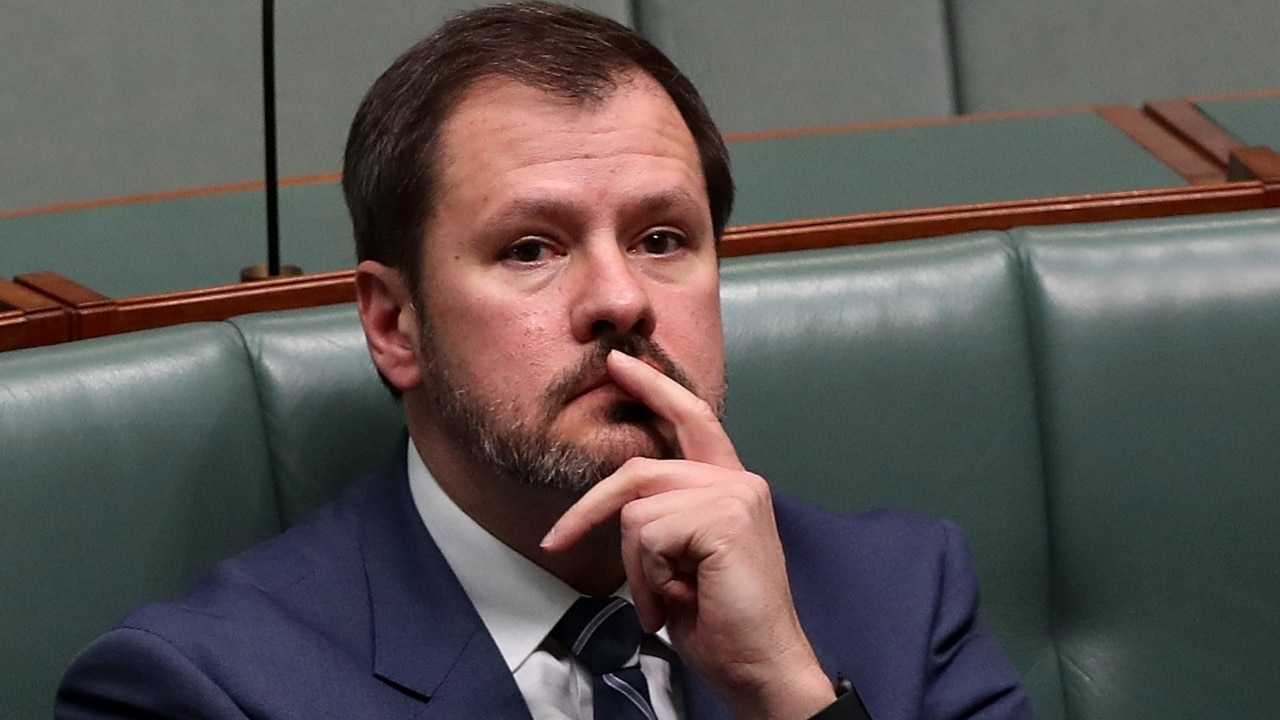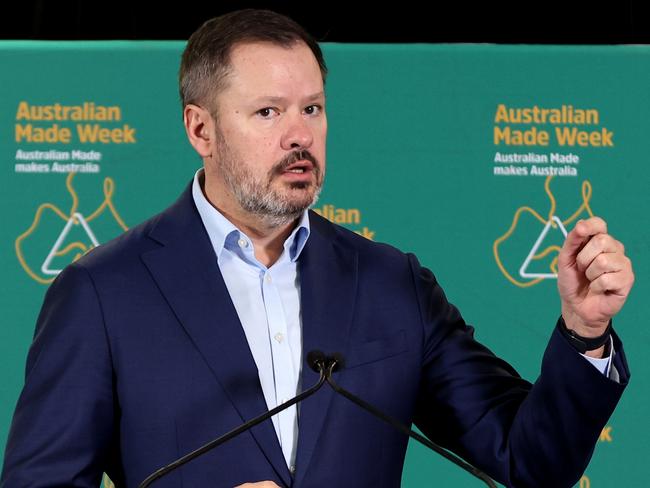
Ed Husic’s suggestion that businesses would be more inclined to invest in Australia if we charged them less tax did not go down well with the Treasurer. We’re not privy to the words Jim Chalmers used to slap down his ministerial colleague after he floated a proposal to lower the company tax rate at a business conference last week. Suffice it to say journalists described the exchange as “terse”.
As Dennis Shanahan wrote on the weekend, the clash between Husic and Chalmers was arguably the most important development in a crowded political week. It was more than manoeuvring by a political rival or a break in cabinet solidarity. It was a challenge to Chalmers’ top-down approach to economic management and his insistence the state is best placed to direct capital flows, rather than the markets. The notion that our economic prospects might improve if business was left to its own devices is the kind of neoliberal nonsense guaranteed to raise the Treasurer’s hackles.

Husic’s proposal would have been a big story if the Press Gallery took economics as seriously as its predecessor. The merits of public policy decisions are seldom examined by journalists and commentators who are not afraid to flaunt their prejudice, as the ABC’s Laura Tingle did at the Sydney Writers Festival last week. Anthony Albanese’s government deserved credit because “they are actually trying to do policy,” she said. “Whether you think the policy is shit or not, that’s another issue.” The mainstream media’s reluctance to hold a progressive Labor government to account has allowed Albanese to abandon economic conventional wisdom of the past 40 years without so much as a raised eyebrow.
The disastrous experiments in state-run economies in Soviet states driven by mandates and five-year plans were taken as conclusive evidence command economies didn’t work. Governments in the West began to deregulate economies and were rewarded with greater prosperity.

As Johan Norberg writes in his recent book, A Capitalist Manifesto, the first two decades of the 21st century have been the best period in history for human wellbeing. He calculates that 138,000 men, women and children have emerged from poverty daily. Yet left-wing economists have not been prepared to give up the fight so easily. The declaration of a climate emergency offered a new excuse for state intervention, which the Albanese government embraced.
The Future Made in Australia policy is driven by the hubris that the government knows best. It assumes to direct private resources accordingly. The Future Made in Australia policy is what Chalmers meant when he promised in an essay in The Monthly at the start of last year “to rebuild a better capitalism”. He declared the government’s new role was to “design markets, facilitate flows of capital into priority areas, and ultimately make progress on our collective problems and purpose”.
The intellectual foundation for this radical departure from free-market principles is the work of Mariana Mazzucato, who Chalmers says is his favourite economist. Mazzucato’s book, The Entrepreneurial State, is best described as a collection of anecdotes rather than an intellectual thesis.
She calls for “moonshots” and “mission-orientated innovation”, arguing that if governments can put astronauts on the moon, they can solve the urgent challenges facing our planet. She ignores the exceptional nature of the Apollo project, which pursued a narrow military objective with virtually unlimited funding. The few industrial spin-offs from moonshot technology came at a high price.

The greatest advances in space technology today are driven by innovation in a competitive private market. Australians living outside the range of mobile phone towers know this all too well. The government-run National Broadband Network program invested $2bn, launching two conventional geostationary satellites 37,000km into space to deliver high-speed internet to remote districts. That service is now effectively redundant thanks to the arrival of Elon Musk’s Starlink.
In defiance of the long history of non-market failures and government-selected losers, the Albanese government is pressing ahead with 10-figure investments in unproven technology such as green hydrogen and quantum computing. Like the architects of the NBN, it arrogantly assumes it knows what the technology landscape will look like in a decade and that no smart-aleck private entrepreneur will come up with anything better.
Capitalism is nothing more or less than an economy not run by the political authorities. Its defining feature is the absence of control from above. Its purpose is to allocate scarce capital with alternative uses to endeavours most likely to improve the material circumstances of the people as a whole. It does so by using the rich sum of information embedded in price signals tempered by an assessment of risk. Neither of these factors plays much part in what we call government investment, which is, in fact, reallocation of private capital. Governments, as we should never forget, have no money of their own.
Husic’s proposal to ease the corporate tax burden recognises industry welfare is no substitute for economic reform designed to create the conditions where businesses and individuals can thrive. Whether our future will be built in Australia rather than China or Arizona ultimately depends on competitive taxation and cheap, reliable energy rather than the wisdom of the political class.
Nick Cater is senior fellow at the Menzies Research Centre.





